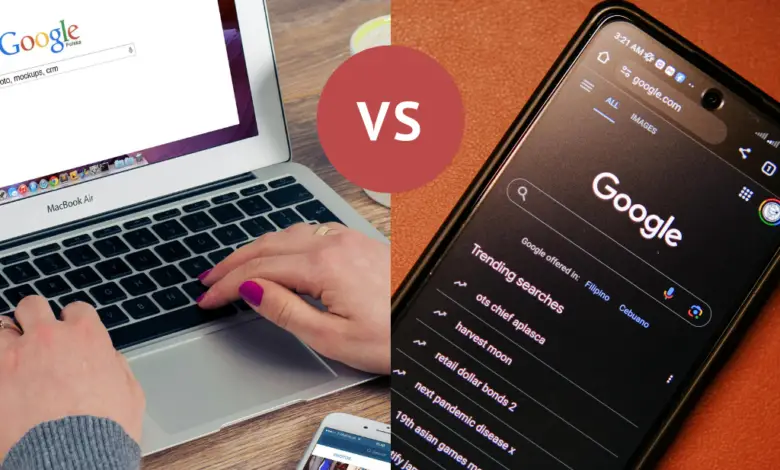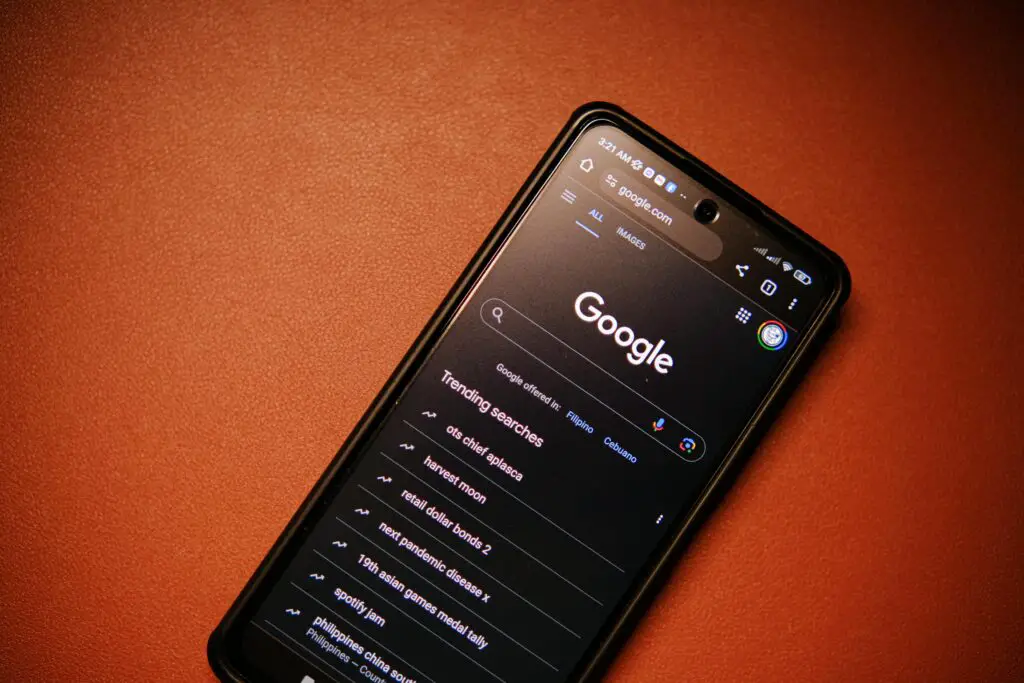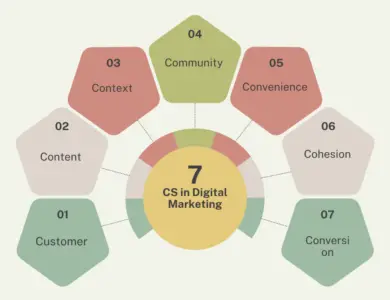
Table of Contents
Search Google or type a URL: Which is Right for You?
When you open a web browser, you’re presented with a choice: should you search on Google or type the URL directly into the address bar? It’s a decision that millions make every day, but understanding the differences between these two actions can significantly improve your browsing experience. In this guide, we’ll break down when and why you might want to use either method, helping you browse more efficiently and securely.
What Does ‘Search Google or Type a URL’ Mean?

When you open your browser and see the message “Search Google or type a URL,” the browser is giving you two main options for navigating the web:
- Search Google: This option allows you to enter a query, and Google will generate a list of relevant results from across the internet. It’s ideal for times when you don’t know exactly where you want to go or when you’re looking for broad information on a topic.
- Type a URL: This refers to typing a specific website address (URL) directly into the address bar (e.g., www.masterblogerz.com). It’s the quickest way to access a website when you already know the exact destination.
Both actions take you online, but they serve different purposes. Let’s explore when each one is the best choice.
When to Use ‘Search Google’

There are several scenarios where searching on Google is the right choice:
- Exploring Broad Topics: If you want to learn about a topic but don’t have a specific website in mind, searching on Google is the way to go. Google provides a wide range of results, allowing you to browse through articles, videos, images, and more.
- Finding Specific Information: Let’s say you want to check the latest news, read product reviews, or find a recipe. A quick search on Google will give you instant access to thousands of relevant results in seconds.
- Discovering New Resources: Often, you’ll be searching for information that you didn’t even know existed. Google’s search results can lead you to new websites, blogs, and forums that you may not have been aware of.
- SEO Impact: When you search for something, Google uses complex algorithms to show the most relevant pages. Websites that rank higher on Google have been optimized for search engines, making it easier for users to find useful information.
In these situations, searching Google helps you find exactly what you need, even when you’re not sure where to start.
When to ‘Type a URL’ Directly

Typing a URL directly into the address bar is often the best option when you know exactly which site you want to visit. Here’s why:
- Direct Access: If you’re trying to reach a specific website—whether it’s your favorite news site, an e-commerce store, or a blog you frequent—typing the URL takes you there immediately without the need to sift through search results.
- Avoiding Irrelevant Results: Sometimes, a search engine might present results that are not exactly what you’re looking for. By typing the website’s URL directly, you bypass any unnecessary steps and go straight to the source.
- Faster and More Secure: Typing a URL directly can be quicker, especially if you have it saved in your browser’s history. It’s also more secure because you avoid accidentally clicking on misleading or malicious search results.
- Bookmarking Benefits: If you frequently visit certain sites, typing the URL once and bookmarking it allows you to access it even faster in the future.
In short, when you’re confident of the website you want to reach, typing the URL is the most efficient and reliable option.
Pros and Cons of ‘Search Google’ vs ‘Type a URL’
To help you decide which method to use, let’s weigh the advantages and disadvantages of each:
Advantages of Searching Google:
- Variety of Information: Provides access to a wide range of topics, resources, and content formats.
- Multiple Sources: You can compare results from different websites to find the best or most reliable information.
- Easy Discovery: You may discover new websites or content you didn’t know about.
Advantages of Typing a URL:
- Direct Access: Takes you exactly where you want to go, without distractions.
- More Secure: Reduces the risk of phishing or landing on a malicious website.
- Faster: Eliminates the need to search through multiple results.
Disadvantages of Searching Google:
- Irrelevant Results: Sometimes, the top search results aren’t exactly what you need, requiring extra clicks to find the right site.
- Time-Consuming: Sorting through multiple search results can take time, especially if you’re in a hurry.
Disadvantages of Typing a URL:
- Typing Errors: It’s easy to mistype a URL, which can lead you to the wrong site or result in an error page.
- Limited Discovery: By typing a URL, you may miss out on discovering new or alternative websites.
How Browsers Handle Both Actions
Modern browsers like Chrome, Safari, and Firefox have made it even easier to navigate the web by merging search and URL entry into a single field, often called an “omnibox.”
Unified Address Bar:
- Whether you type a search query or a full URL, the browser automatically determines the appropriate action. If it detects a search query, it sends it to Google (or your default search engine). If it recognizes a URL, it takes you directly to that site.
Auto-Suggestions:
- Most browsers offer auto-suggestions based on your search history or popular websites, making it easier to either search or type the correct URL without entering the full address.
Best Practices for Efficient Browsing
To maximize your browsing efficiency, consider these tips:
- Craft Effective Google Searches: Use specific keywords and phrases to get better results. For example, instead of just typing “best phone,” search for “best budget smartphone 2024 reviews” to narrow down results.
- Type URLs Carefully: If you’re typing a URL, double-check it for accuracy, especially for important websites like banks or social media platforms. This helps you avoid landing on a fake or malicious site.
- Bookmark Frequently Visited Sites: Save time by bookmarking your most visited pages. This allows for quick access without needing to retype the URL every time.
FAQs
Q1: What happens if I type a URL instead of searching for it?
Typing a URL takes you directly to the website, whereas searching for a URL might lead you to multiple results, including the website you want, along with other potentially relevant content.
Q2: Which is faster: Searching Google or typing a URL?
Typing a URL is faster if you know the website you want to visit. Searching on Google could take more time as you browse through multiple search results.
Q3: Why do some browsers suggest URLs while I’m searching?
Modern browsers use predictive technology to suggest websites based on your search history or popular sites related to what you’re typing.
Q4: Is searching Google safer than typing a URL?
Typing a URL directly can be safer if you’re certain about the website’s address. Searching can sometimes lead to malicious sites, though Google tries to filter out harmful results.
In conclusion, understanding the difference between searching on Google and typing a URL can greatly enhance your web-browsing experience. Use Google when you’re exploring topics or seeking new information, but type a URL directly when you want fast, secure access to a known site. Happy browsing!

Aitizaz Rahim is a dynamic Digital Marketing and SEO expert, empowering businesses worldwide with proven strategies. As the founder of Masterblogerz, he shares actionable insights to help others master the digital marketing world.



